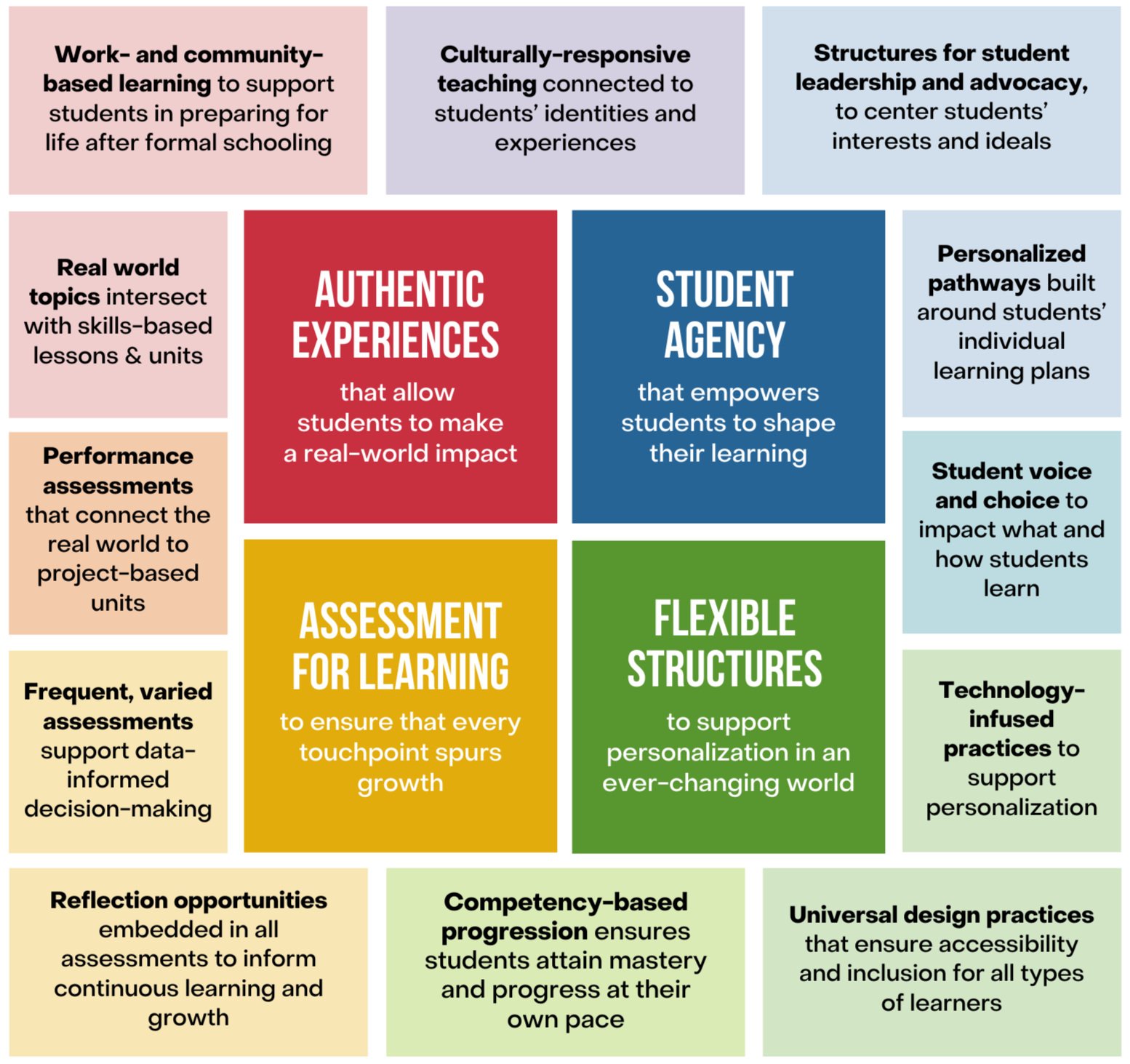Student-Centered Learning is a pedagogical approach that puts the needs, interests, and goals of students at the center, allowing these aspects to drive instruction. It is organized around four principles: Flexible Structures, Assessment for Learning, Authentic Experiences, and Student Agency.
The Innovation in Practice Toolkit focuses on the core principles of Student-Centered Learning (SCL). Each core principle section contains:
a definition of the principle;
key considerations for educators to support their growth in that area;
an exploration of each of the practices that embody that principle;
innovative teacher-developed tools (lessons, activities, units, and more) that exemplify each practice.
Teacher-developed Tools
Classroom “structure” describes how teachers design tasks, share authority, and evaluate students’ progress. In a student-centered classroom, educators strive to create a pedagogical framework that includes Flexible Structures—championing personalization that supports learning outcomes, advancing metacognitive learning strategies, and creating a positive and powerful classroom climate.
Student-centered Assessment for Learning creates opportunities to dig deeper than traditional assessments. Instead of viewing assessment as consecutive to learning—something that happens when learning is complete—a student-centered classroom views learning as continuous. Assessment, then, is an additional opportunity for growth in knowledge and skill; it becomes a tool for learning.
Students learn when they are inspired to frame their own questions and pursue meaningful answers. The Authentic Experiences principle is where theory meets practice, inviting students to act on their learning and make real-world impact.
Student Agency is fundamental to Student-Centered—or, perhaps even more properly—Student-Driven Learning. While there are varying definitions and terms for Student Agency, the basic premise is creating a classroom (and school) environment where students have the opportunity to take ownership and responsibility for what and how they learn. This methodological approach to classroom planning has been proved to increase the mastery of concepts and the development of life long skills such as executive functioning and reflective meta-cognition.






